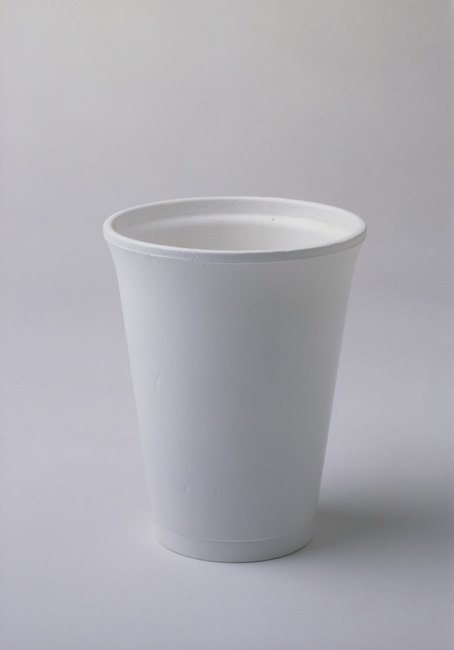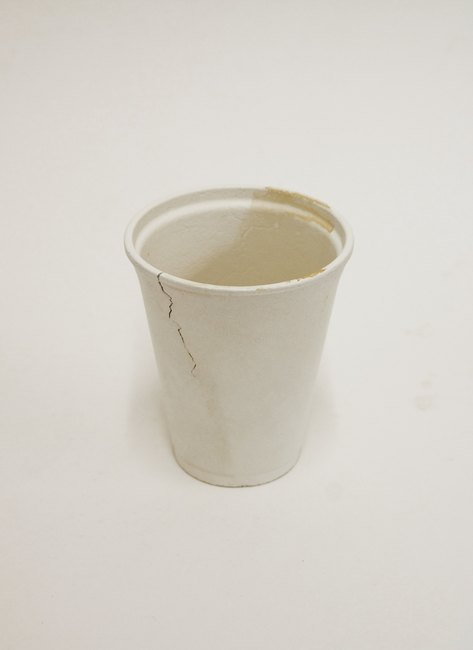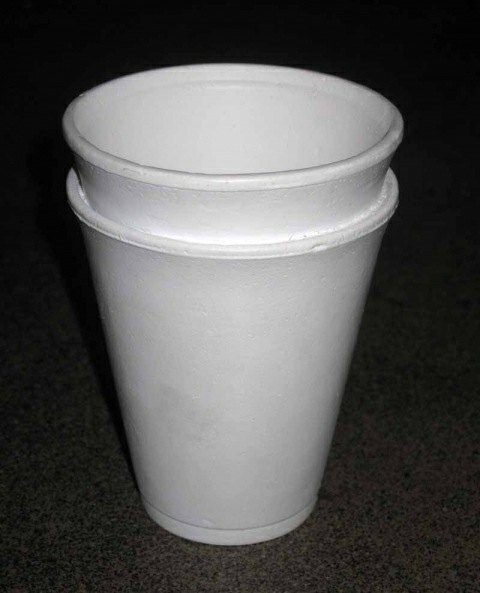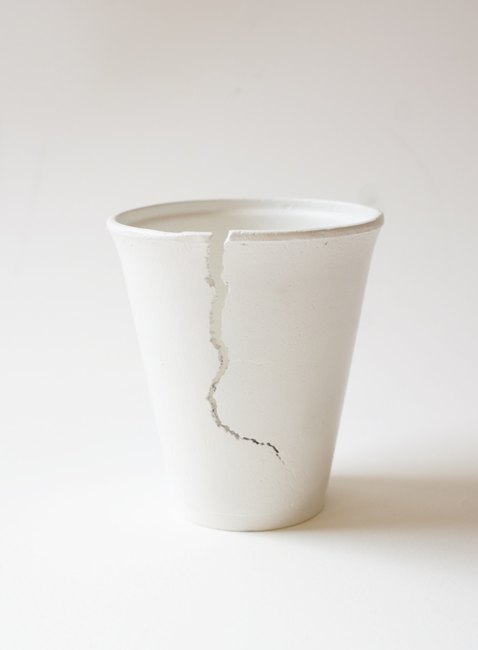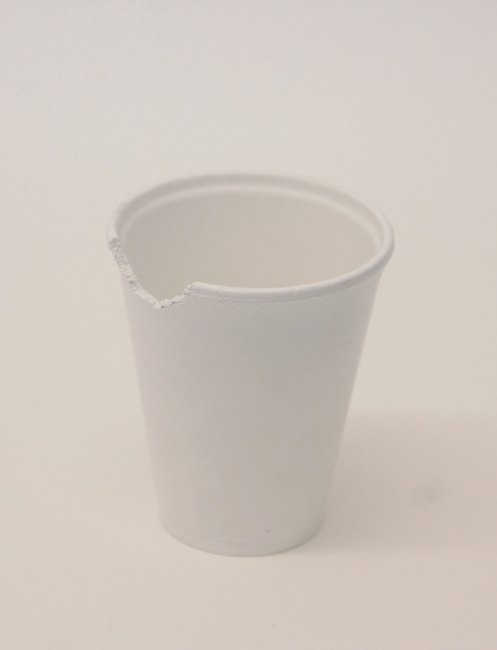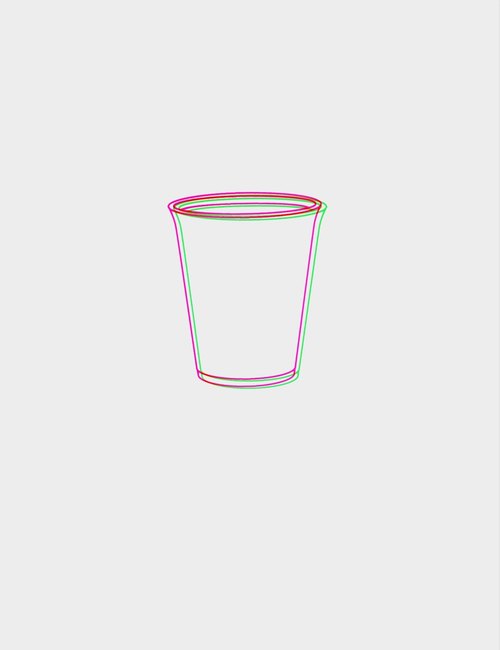AboutEssays2005Polystyrene Cups
There are a few things in this world that simply demand to be fiddled with. Once these mundane objects have served their purpose, they are free to be appropriated via all kinds of operations that are usually carried out absentmindedly as their porous surface easily yields to teeth and nail imprints, ink doodlings and cigarette burns.
This flexible material, as strong as certain metals, is in fact an aromatic polymer made from solidified liquid hydrocarbon. The type of polystyrene used specifically to make the familiar cups and packaging material is an expanded form produced by mixing a gaseous blowing agent into what would otherwise become the solid plastic that is regular polystyrene, often used in the making of CD cases and disposable cutlery. Its very texture and lightness contribute greatly to the pleasure derived from modifying them.
Has anything precious ever been fashioned out polystyrene? It is very unlikely for the very reason that because it is so light and devoid of character, it feels inconsequential to poke and prod at it before unceremoniously disposing of it. As a disposable material though, it doesn't get much better as its cushiony consistency offers just enough resistance while allowing for a variety of marks from the deep to the superficial. It is also recognized as an efficient insulator, thus its frequent use as a container for hot liquids, but bear in mind that it is highly flammable if you are ever possessed by the urge to decorate your empty coffee cup with an open flame.
Ironically for an object valued for its disposability, because expanded polystyrene takes on average up to 900 years to decompose, polystyrene cups that have been absent-mindedly sculpted and marked accidentally become works for posterity. With this in mind, if everybody treated the polystyrene as a respectable material on which to write, draw and engrave, perhaps the British Library could, in time, give up on the digitalisation of all its books and turn to the “polystyrisation” of its collections instead. Imagine sorting through stacks of cups instead of piles of books.
